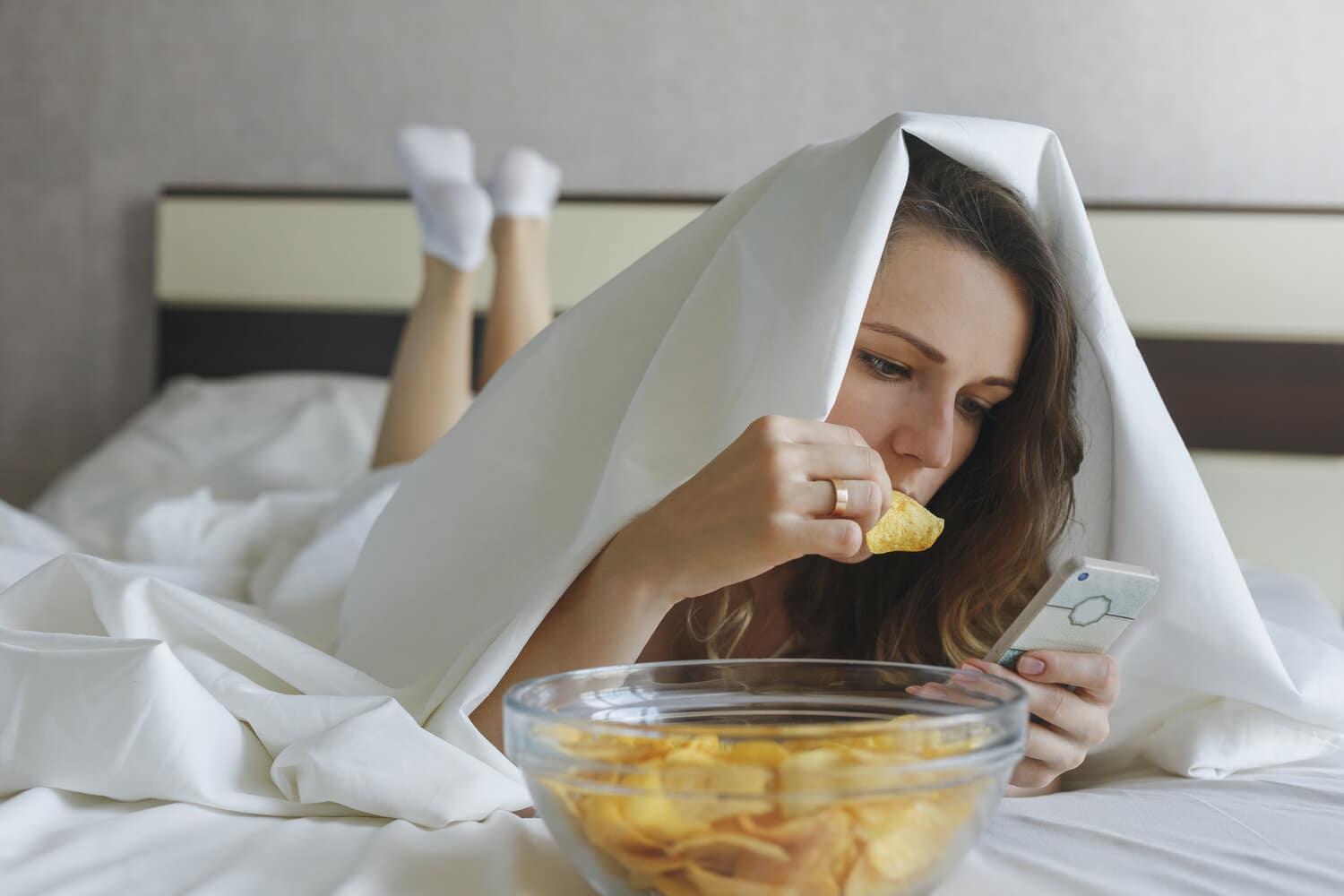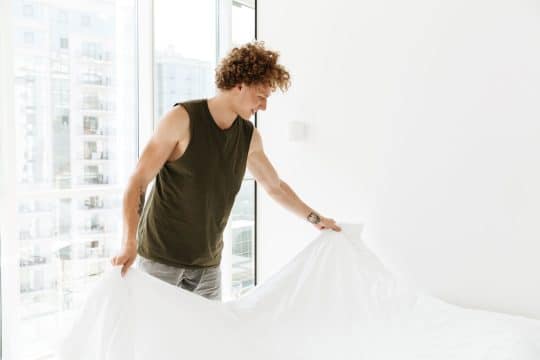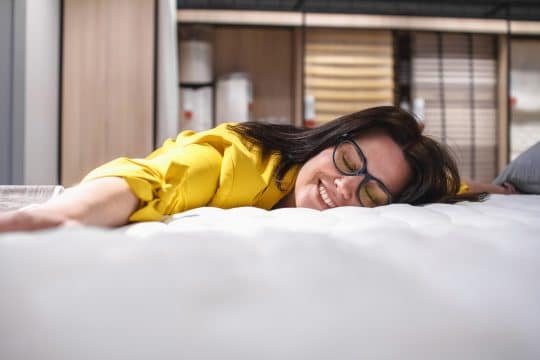- Your cart is empty
- Continue Shopping
Reasons Not to Eat in Bed

Eating breakfast in bed is often linked with notions of an ideal Mother’s Day, a romantic gesture, or the ultimate relaxation during a hotel stay (isn’t that what room service is for?!). But having seen plenty of damaged mattresses in our day, we beg to differ. For your own bed’s sake, don’t eat under — or on top of — your covers.
Food and liquids can easily damage your mattress
Even if you have an adjustable bed and you sit up in bed while you eat, all it takes is one teetering cup of coffee or an unstable plate of eggs. Or spaghetti. Or bowl of soup. You get the idea. Grease from your food, liquid from soups and sauces, and drinks can all damage your mattress’ foam and fibers if they soak through your sheets. Not to mention the load of laundry you’ll have ahead of you.
This is a good time to remind you: make sure you’re using a mattress protector. Even if you don’t eat in bed, a mattress protector will keep your mattress free of sweat and skin oils and protect against any accidents. Many mattress warranties are voided if you don’t use a mattress protector, so make sure you’re covered.
Food leaves lingering smells in your sheets and mattress
Have you ever burned toast in the morning? That scent lingers in the kitchen for the rest of the day, and while admittedly more pleasant, fragrances like onions and garlic also tend to hang around. If you bring food — and its smells — into your bedroom, well, you’ve got to be willing to sleep with those smells. And if an accident happens, as we discussed above, you don’t want to be stuck googling “how to get gross smells out of your mattress” at 10:00 p.m. on a Sunday evening. Plus, once the smell of food saturates your pillow, it’s pretty hard to escape that scent.
Food attracts bugs
If nothing so far has swayed you, consider this: pests don’t make good bedfellows! Bugs like ants and cockroaches are attracted to crumbs and even tiny particles of food you might not be able to see.
Food interrupts your good sleep hygiene
The term sleep hygiene refers to the practices that keep your bedroom environment and bedtime routine conducive to sleep. One routine that experts recommend for better sleep is using your bed for sleeping only. Eating, watching TV, and scrolling on your phone in bed disturb that pattern. If you just love the idea of getting cozy while you eat, have breakfast (or dinner) in your pajamas, but try to keep food out of the bedroom — and the blankets — and you’ll be closer to a routine that helps you sleep through the night and wake up feeling rested.
If you have questions about mattress protectors, sleep health, or finding the right mattress for your best night’s sleep, don’t hesitate to contact our sleep experts for even more insights.





